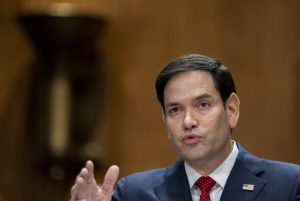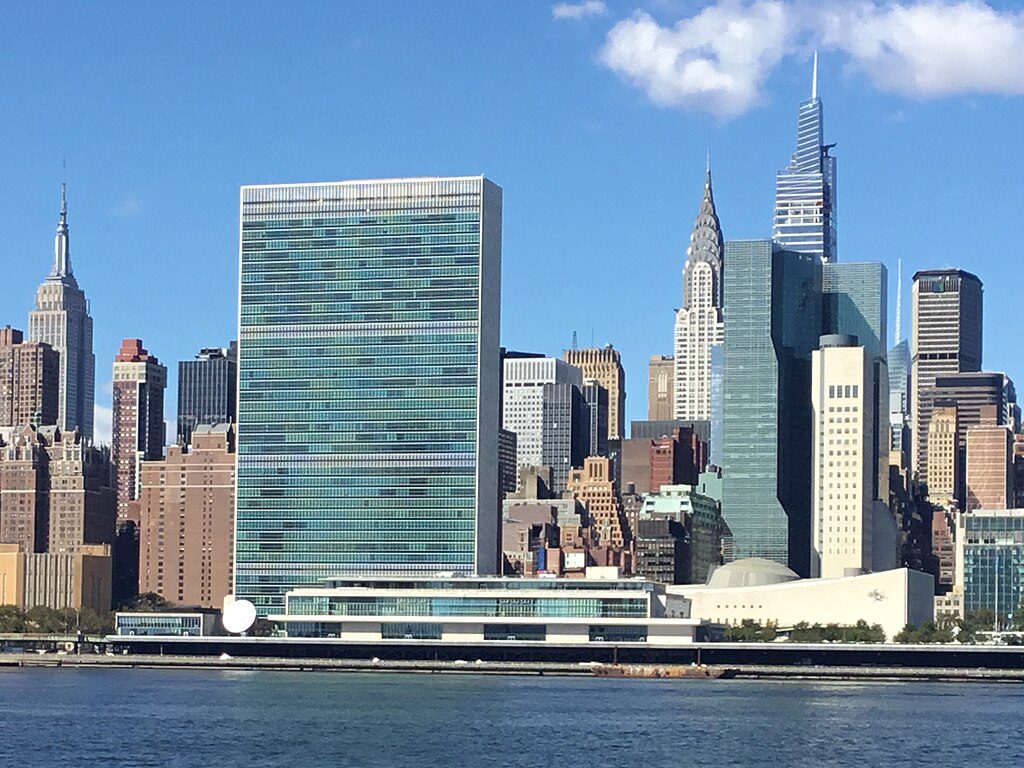World leaders have urged nuclear rivals in South Asia to de-escalate and advised both India and Pakistan to re-establish direct communication amid mounting tensions in the region. US Secretary of State Marco Rubio has urged both India and Pakistan to work with each other to de-escalate tensions as nuclear rivals have gone ‘on a war footing’.
The call came after Islamabad claimed to have “credible intelligence” that India was planning to attack it within 24-36 hours, in retaliation for the killing of 26 men in last week’s deadly attack on Pahalgam tourists inside Indian-controlled Kashmir.

The US State Department says, Secretary Marco Rubio spoke with Prime Minister of Pakistan Muhammad Shehbaz Sharif. The Secretary spoke of the need to condemn the terror attack on April 22 in Pahalgam. Both leaders reaffirmed their continued commitment to holding terrorists accountable for their heinous acts of violence.
The Secretary urged Pakistani officials’ cooperation in investigating this unconscionable attack. He also encouraged Pakistan to work with India to de-escalate tensions, re-establish direct communications, and maintain peace and security in South Asia.
According to the US Department of State’s spokesperson Tammy Bruce: In separate calls with Pakistan’s Prime Minister Shehbaz Sharif and Indian Foreign Minister Subrahmanyam Jaishankar on Wednesday, Marco Rubio expressed support to India in combating “terrorism” and urged Pakistan to cooperate in probing the attack.
Secretary of State Marco Rubio spoke with Indian External Affairs Minister Subrahmanyam Jaishankar today. The Secretary expressed his sorrow for the lives lost in the horrific terrorist attack in Pahalgam, and reaffirmed the United States’ commitment to cooperation with India against terrorism. He also encouraged India to work with Pakistan to de-escalate tensions and maintain peace and security in South Asia.
India has moved to punish Pakistan after accusing it of backing the attack in the Kashmiri town of Pahalgam, which Islamabad denies, driving tensions between the nuclear-armed rivals to their highest point since a suicide car bombing in 2019.
New Delhi shut its airspace to Pakistani airlines, the government said on Wednesday, days after Islamabad banned Indian airlines from flying over its territory. The ban on Pakistani aircraft will be in effect from April 30 to May 23, according to a Notice to Air Missions (NOTAM) issued by the government.
Indian and Pakistani troops have exchanged small -arms fire over the past seven nights, which New Delhi says was initiated by the Pakistani side across their de facto border, popularly known as Line of Control (LOC), running through Kashmir. No casualties were reported.
Several world leaders, including US President Donald Trump, French President Emmanuel Macron, Israeli Prime Minister Benjamin Netanyahu, Egyptian President Abdel Fattah El-Sisi, Jordan’s King Abdullah II and Italian Prime Minister Giorgia Meloni, also dialled Indian Prime Minister Narendra Modi to condemn the Pahalgam attack, reports agencies from New Delhi.
Japanese Prime Minister Shigeru Ishiba, UAE President Mohamed Bin Zayed Al Nahyan, Iranian President Masoud Pezeshkian, Sri Lankan President Anura Kumara Dissanayake, Dutch Prime Minister Dick Schoof, US Vice President J D Vance, Australian Prime Minister Anthony Albanese and Nepal Prime Minister KP Sharma Oli also spoke to Modi.
Shehbaz Sharif’s office, in a statement, said that Pakistan urged Washington to press India to “dial down the rhetoric and act responsibly”.
The Pakistan prime minister expressed regret that India had chosen to “weaponise water” by stepping away from the Indus Waters Treaty.
Indian and Pakistani troops have exchanged small-arms fire over the past six nights, which New Delhi says was initiated by the Pakistani side across their de facto border running through Kashmir. No casualties were reported.
India accuses Pakistan of funding and encouraging armed groups in Kashmir, a Himalayan territory claimed in its entirety by both nations but ruled in part by each of them. Islamabad says it only provides moral and diplomatic support to a Kashmiri demand for self-determination.
United Nations Secretary-General Antonio Guterres, in separate phone calls with India and Pakistan officials, stressed the need to “avoid a confrontation that could result in tragic consequences”.
According to news agencies, India has reached out to its counterparts from eight non-permanent members of the United Nations Security Council (UNSC) as part of its diplomatic action. In telephonic conversations with Danish counterpart Lars Lokke Rasmussen on Wednesday, Foreign Minister S Jaishankar is understood to have conveyed to him India’s resolve to bring the perpetrators of the April 22 attack to justice.
On Tuesday, External Affairs Minister S Jaishankar spoke to the Foreign Ministers of Algeria, Greece, Guyana, Panama, Sierra Leone, Slovenia and Somalia – all nations currently serving as non-permanent members of the UNSC for a two-year term.
Mr Jaishankar’s phone conversations with foreign ministers of the non-permanent member nations of the UNSC assume significance as Pakistan is also a member of the influential UN body for the 2025-26 period. Citing “cross-border linkages” to the horrific attack, India has promised severe punishment to those involved in the strike.
India has blamed Pakistan for the attack after The Resistance Front (TRF), a proxy of Pakistan-based terror group Lashkar-e-Taiba (LeT) claimed responsibility for it. Pakistan, meanwhile, denies responsibility and has called for a neutral probe.
India’s move came after New Delhi faced a tough battle in negotiating a statement at the UN Security Council. In its April 25 statement on the attack, the UN body condemned the terror attack in the “strongest terms” and reaffirmed that terrorism in all its forms and manifestations constitutes one of the “most serious” threats to international peace and security.
However, the statement was seen as “inadequate” by India as Pakistan’s efforts were evident in its attempts to adjust the phrasing of the UNSC statement. There were indications that the statement resulted from intense negotiations from Pakistan’s side to modify the wording.
The non-permanent members are elected by the UN General Assembly for two-year terms, and their membership rotates.


